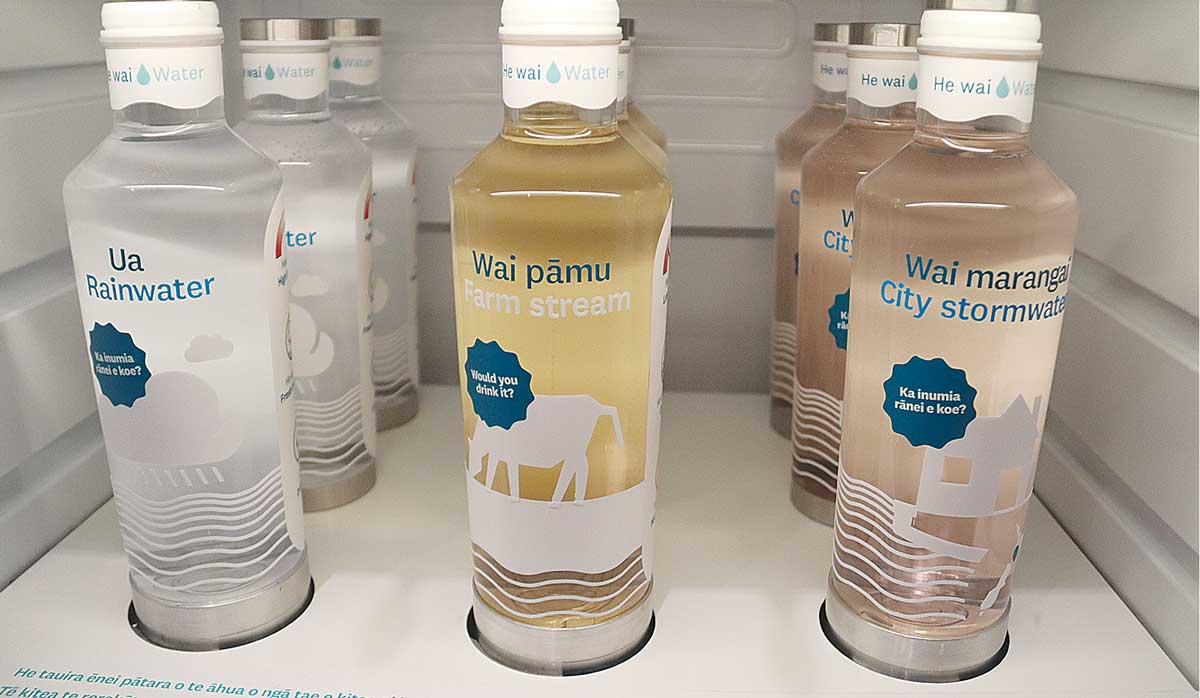'Altered'
OPINION: Dark suited spin doctors exist to, well, spin, and the nice cuddly progressive types at Greenpeace Aotearoa practice this dark art with the same cynicism as your average corporate giant.
OPINION: “A lie is halfway around the world before the truth has a chance to get its pants on” sums up the propaganda certain activists, bureaucrats and policymakers are spreading about the farming sector in this country.
Such a quote can be attributed to Winston Churchill.
For years, we’ve seen the likes of Fish & Game, Greenpeace and Forest and Bird lobbyists constantly and consistently painting agriculture with malevolent terms such as: ‘dirty dairying’, ‘industrial farming’ and ‘water polluters’ – to name a few. While there is some truth in such claims, it is by no means fair or truthful to label all farming as environmentally damaging as these groups do.
Late last year, we saw the country’s national museum Te Papa running an exhibition on water quality in New Zealand that was clearly anti-farming. The exhibition showed water quality in various parts of the country: farm streams, lakes and harbours. However, Te Papa had water bottles artificially coloured to show what they believe is the colour of water in those places. It also had an interactive display where people can supposedly improve the environment by touching a screen which said: “less dairy”.
For its part, Te Papa basically admitted it was screwing the scrum on farming’s impact in its exhibition to get people talking about the environment.
“We can’t be an encyclopaedia that presents the full complexity of an issue,” a museum spokesperson said. “But we can spark interest and get people thinking and talking.”
 |
|---|
|
The bottles at Te Papa’s exhibit on water quality. |
That is an unbelievably dangerous and irresponsible attitude from the country’s national museum.
And now we see the latest addition to the school curriculum, a government–backed resource on climate change, which – again – takes an overly simplistic and anti-farming approach to a very complex subject.
The teaching resource, which will be used in schools this year, see students told, among other things, to eat less meat and dairy to stave off the end of the world.
There appears to be no discussion about the actual carbon footprint of NZ meat and dairy (which is low compared to other global producers) or the environmental impact of growing more crops to produce plant-based food.
How can we expect people to be fully informed on such important issues; when deliberate half-truths and misleading information is sanctioned by government, educators and museums?
As an industry we must continue to push back and demand the whole truth be told.
The Meat Industry Association of New Zealand (MIA) today announced that Chief Executive Officer Sirma Karapeeva has resigned from the role.
The winners of the 2026 Hawke’s Bay/Wairarapa Dairy Industry Awards were announced at the annual awards dinner held at Copthorne Solway Park in Masterton on Thursday evening.
Environment Southland is welcoming this week’s decision by the Environmental Protection Authority (EPA) to approve the release of Blaptea elguetai, a leaf‑feeding beetle that will help control the highly invasive Chilean flame creeper.
This March, the potato industry is proudly celebrating International Women’s Day on 8 March alongside the International Year of the Woman Farmer, recognising the vital role women play across every part of the sector — from paddocks and packhouses to research, leadership, and innovation.
Fruit trader Seeka posted a record profit and returns to shareholders in 2025.
Recent weather events in the Bay of Plenty, Gisborne/Tairawhiti, and Canterbury have been declared a medium-scale adverse event.